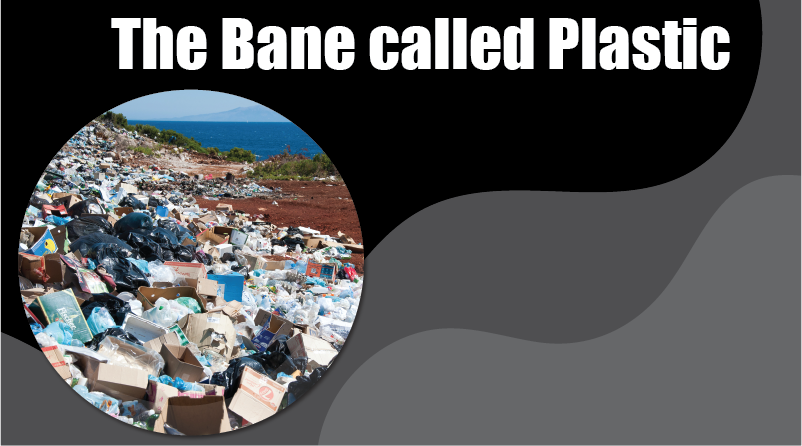Man is the most intelligent of all the animals yet the most destructive too. Plastic was invented by Alexander Parkes in 1862 as a substitute to paper. Paper was widely used for packing things then, and it required cutting trees and thus harmed the environment.
So at first, plastic was seen as a remarkably convenient, blissful and cheap packaging that saved millions of trees from the axe.
Indeed, the easy to mould plastic that can be made into various shapes, colours and sizes became the most appealing material for household items and packaging. Moreover, being lightweight and waterproof make it superior to any other material man has known.
But this widely used material which was seen as a boon, is non-biodegradable. That is, microorganisms cannot decompose it until a very long, long time (centuries!) So the disposable spoon you used at the party will end up in a landfill and stay put for around 4000 years!
Apart from being non-biodegradable, plastic has several other disadvantages for the environment, on humans, wildlife and marine life. Keep reading further.
How Plastic Harms the Human Health
- Plastic is derived from fossils. They are a depleting natural resource. The production of plastic releases toxins into the air and water. Research done on nearly two hundred chemicals generated in plastic production suggest that they are carcinogenic and harm the reproductive, neurological, immune system and impair development, liver, kidney and brain function.
- Plastic used for serving/ packing/ cooking food or water is equivalent to ingesting micro-plastics and other cancer-causing toxins and disturbing the endocrine system. The BPA (bisphenol A) and phthalate used in food packaging, polycarbonate bottles, and tableware enter human bodies. They interfere with genital development in foetuses of pregnant ladies whose blood and urine samples show high levels of BPA or phthalate.
- Research has shown that BPA and phthalate can cause heart diseases, diabetes and affect the functioning of the brain and reproductive systems.
How Plastic Harms the Environment
- All the plastic that we dispose of ends up in either water or land/ soil. They start accumulating in water and get ingested by aquatic animals. The agricultural soil contaminated by micro-plastics carries them into the food produce. Thus plastic reaches our food and water. Ingesting or inhaling micro-plastics can cause inflammation, cancer and autoimmune disorders, cardiovascular diseases.
- An enormous amount of oil is used in plastic production, and the process itself is energy-intensive. This leaves a huge carbon footprint.
How Plastic is Destructing Marine Life:
- Twelve million tonnes! This is the amount of plastic that that is reaching into oceans every year. This enormous amount of micro-plastics has been killing sea birds, turtles, whales, dolphins and fish. These creatures either ingest plastic or get tangled. On ingesting, they either die by shock or starvation or suffocation or by toxicity. Plastic has disrupted their reproductive system and made several species endangered.
While we agree we cannot go completely plastic-free in our daily lives, we as responsible planet dwellers can at-least reduce the use of plastic. Switching to biodegradable (e.g. baggage, banana leaves, bamboo) or recyclable (metal/ glass) alternatives can help us reduce the use of plastic.
Live better!



